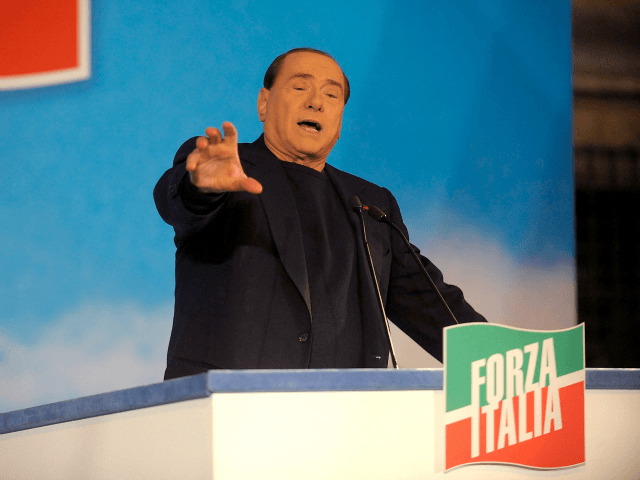As the U.S. presidential primaries rage on and Donald Trump holds onto a healthy lead in the Republican showdown, Politico has drawn a parallel between the American magnate and Italy’s resilient but often embarrassing populist leader, Silvio Berlusconi.
Politico writer Silvia Marchetti claims that on observing Trump’s rise, Italians experience a “queasy sense of déjà vu,” hearing “very familiar echoes in Trump’s populist-nationalist rhetoric, his opulent machismo and the cult of personality based on the image of the self-made man.”
Similar comparisons have appeared recently in the Italian press, who find numerous similarities between the entrepreneurs, suggesting that an excellence in self-promotion and consumer persuasion do not always translate into effective policy or leadership.
Il Fatto Quotidiano, an influential daily, said that like Berlusconi, Trump presents “a threat to democracy because he’s not a politician, but a brand—a parasite that destroys the political establishment through self-marketing and advertisement techniques.”
Silvio Berlusconi enjoyed a hugely successful career first as a media mogul and later as a thrice-elected prime minister. Known as a Teflon politician, even when Berlusconi was eventually convicted for tax fraud in 2013 and sentenced separately for having sex with an under-age prostitute, many of his supporters continued to proclaim that he had fallen victim to a left-wing conspiracy.
Marchetti’s comparison between Trump and Berlusconi doesn’t end with the rhetorical style of the two men. She also sees similarities in the two entrepreneurs’ womanizing, anti-immigrant platforms, extravagant promises and an uncanny ability to appeal to ordinary citizens “from a lofty and velvet-covered perch.” All of this leads the writer to conclude that Donald Trump is “an American Silvio Berlusconi.”
Like Trump, Berlusconi came to politics late in his career, presenting himself as a populist, anti-establishment candidate who had proven himself in the private sector. Many believed his business acumen would help reignite Italy’s flagging economy and signal a break with the notorious corruption and instability of the Italian political machine.
Marchetti claims that the Italian experience suggests that “Trump’s American voters should be careful what they ask for.” Once in office, she observes, the reality of Prime Minister Berlusconi was quite different than what candidate Berlusconi had pledged.
While promising less taxes for everyone, Berlusconi oversaw a general rise in Italy’s tax rate, which hit 54 percent in 2013—the highest level in Europe.
“Berlusconi revealed himself a great campaign manager, but a terrible man of government,” said Giovanni Orsina, director at the Rome-based Luiss University School of Government. “His flamboyant promises never met up to expectations. His idea of politics as showbiz was a failure.”
Marchetti writes that Berlusconi’s tendency for self-indulgence “ended in international humiliation for Italy,” and suggests that a Trump presidency could end similarly for America, “not just with personal embarrassment, but with carnage in the political system.”
Some Italians strike a pose of political sentinels, warning unwary Americans of what they might be getting into with a Trump presidency.
“Berlusconi and Trump have the power to touch raw nerves and split a nation,” said Alberto Bianchi, a northern Italian banker. “Verbal leads to physical violence.”
Marchetti also cites Mirella Fabi, a Rome shopkeeper in Rome, who claims that Berlusconi “rose to power only to pursue his own economic interests, passed ad-personam laws and ended up bringing starlets and prostitutes into parliament and government.”
“He’s a con man who fooled us all,” Fabi said.
The Politico editorial acknowledges that since Trump hasn’t yet held any kind of office, it impossible to know how his words will translate into action.
But they clearly hope that by drawing parallels between the Italian experience of Berlusconi and his American political doppelganger, some voters will be led to question the expedience of a Trump presidency.
Every election implies risk, they seem to say. The question is whether a Trump tenure in the White House would be worth it.
Follow Thomas D. Williams on Twitter Follow @tdwilliamsrome

COMMENTS
Please let us know if you're having issues with commenting.